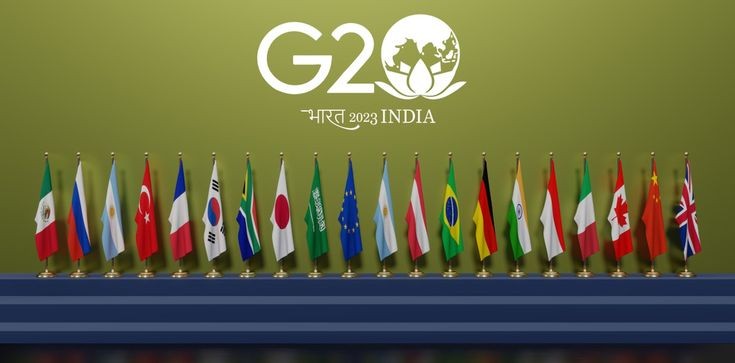G20: Shaping Global Cooperation for a Sustainable Future
Table of Contents
ToggleIntroduction:
The Group of Twenty (G20) is an international forum consisting of the world’s major economies, representing 85% of global GDP and two-thirds of the world’s population. Established in 1999 amidst the Asian financial crisis, the G20 has evolved to become a vital platform for promoting global economic stability, sustainable development, and effective cooperation among nations. This article explores the significance of the G20 and its role in shaping a more inclusive and prosperous world.
1. The Purpose and Structure of the G20:
The primary goal of the G20 is to facilitate dialogue and coordination on global economic and financial matters. It brings together leaders from 19 countries, including Argentina, Australia, Brazil, Canada, China, France, Germany, India, Indonesia, Italy, Japan, Mexico Saudi Arabia, South Africa, South Korea, Turkey, the United Kingdom, and the United States, along with the European Union. Additionally, representatives from various international organizations also participate, enriching discussions with their expertise.
2. Promoting Economic Growth and Stability:
One of the G20 is fostering robust and sustainable economic growth. Through policy coordination, the G20 members strive to address economic challenges, encourage cross-border investments, and promote fair trade practices. The group plays a vital role in addressing global financial crises, as demonstrated during the 2008 financial crisis when coordinated efforts prevented a deeper collapse of the global economy.
3. Advancing International Financial Reforms:
The G20 actively engages in building a more resilient and inclusive global financial system. It aims to strengthen financial regulations, enhance transparency, and minimize systemic risks. Notably, initiatives like the Basel III framework, which requires banks to maintain higher capital buffers, have been implemented as a result of G20 deliberations.
4. Tackling Climate Change and Environmental Challenges:
Recognizing the urgency of addressing climate change, the G20 emphasizes sustainable development and clean energy transitions. Discussions within the forum enable member countries to align their policies, explore mobilize resources for a low-carbon future. This collective effort bolsters global initiatives such as the Paris Agreement, driving progress towards a greener and more sustainable world.
5. Encouraging Inclusive Growth and Development:
To reduce inequality and support the most vulnerable, the G20 promotes inclusive growth and development. Recognizing the importance of social protection, education, and women’s economic empowerment, the group seeks to create opportunities for all segments of society. By prioritizing human-centered policies, the G20 aims to bridge the gaps between developed and developing economies.
6. Addressing Global Health Challenges:
As demonstrated during the COVID-19 pandemic, the G20 plays a critical role in coordinating responses to global health crises. It facilitates information sharing, promotes research collaboration, and supports equitable access to vaccines and treatments. The G20’s future pandemics.
Conclusion:
The G20 serves as a crucial platform for fostering dialogue and cooperation among the world’s largest economies. By bringing together leaders, policymakers, and experts, it addresses pressing global challenges, including economic stability, public health crises. The G20’s collective efforts have the potential to shape a more sustainable, prosperous, and inclusive future for all nations, working towards a world based on cooperation, shared responsibilities.

